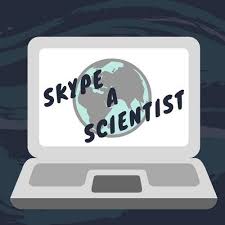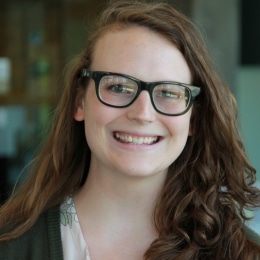In recent weeks, people across the United Kingdom have had to adjust the way that they live and work due to social distancing measures as a result of COVID-19. This has meant that many people have started using video conferencing applications to communicate, some for the first time.
Students at Space Studio West London, however, are already accustomed to using video conferencing in a professional capacity. This is because they have been using the telecommunications app Skype to collaborate with scientists around the world, as part of the Skype a Scientist programme.
The initiative, founded by Sarah McAnulty in 2016, matches scientists with classrooms all around the world, without them even having to leave their laboratories.

Space Studio West London’s last Skype a Scientist session involved speaking with Addiction Neuroscience PhD candidate Cherish Ardinger from Indiana University – Purdue University Indianapolis, about her research in the effects of addictive substances on the brain.
Cherish explained:
I was excited to get involved with Skype a Scientist because as a first-generation college student, I knew very few scientists while I was growing up. Through Skype a Scientist, I have found a mutually beneficial experience in answering questions from students about my research and sharing some of my lab experiences with them, and the students at Space Studio West London were great to talk to!
Cherish’s research includes using a mouse model of binge drinking, where mice have access to a sipper of alcohol for two hours a day, and the mice willingly drink to intoxication each day.
Whilst the mice are drinking, Cherish records their brain activity from specific brain regions of interest using a technique called awake-behaving electrophysiology.
The aim of Ms Ardinger’s research is to gain a better insight into the direct impact of repeated heavy alcohol consumption on neural activity, which she hopes will be proved by the electrophysiology data collected from these experiments.

“In the session with the students, we discussed research which has shown that binge drinking is associated with adverse consequences such as memory deficits, sleep disturbances, and impairments in cognitive processes.” Cherish added.
Stephanie Lee, Careers Lead at Space Studio West London and who manages the academy’s Skype a Scientist programme, said that:
Skype a Scientist is a fantastic way of bringing working scientists from all over the world to the classroom. Students sometimes feel a little overwhelmed when attending events with a large group and do not speak up for fear of asking ‘the wrong question’ or a question that others may already know the answer to. The safety of asking questions in the students school classroom is comforting.
“We only have small groups so the scientist also feels at ease and not on the spot to answer questions being fired at them; the scientist can go into more depth with the questions being asked, and it becomes more like a discussion rather than a simple Q&A” Mrs Lee added.
This is an ongoing project for Space Studio, and Mrs Lee will continue to liaise with the students, and they determine which scientists the academy will request to be matched with.

Cherish feels particularly passionate about speaking with students at a secondary school about her research, because when she was growing up, she didn’t have those same opportunities and it is very important to have that representation.
Speaking as an LGBT woman working in neuroscience, she said that:
The field is generally welcoming, but it can also feel lonely at times. It can be hard to find role models and mentors with the same identity, so I think that representation goes a long way. Having the opportunity to see and interact with scientists who identify the same way that you do can make you feel like you belong. Skype a Scientist is great for representation!

